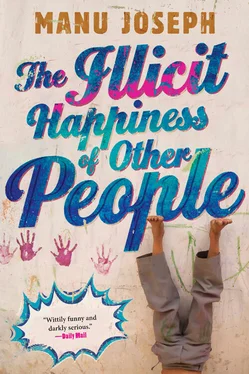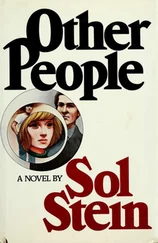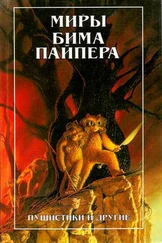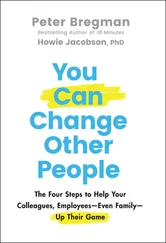‘Yes,’ Beta says, returning his steady gaze to Ousep. ‘I’ve something to say but it is nothing important, is that all right?’
‘That’s all right. I am not here to dig out important things.’
‘That’s not true. You’re here to solve the puzzle.’
‘I am here to understand my son better.’
‘As you say. I won’t argue with you,’ Beta says. ‘I remember once when I attended one of these dumb meetings, Unni told me that he was working on a graphic novel. He had an idea but he didn’t know how to get into it.’
‘What was the idea?’
Ousep takes a moment to realize that Beta has launched straight into the story. Thousands of years ago in the history of man, a great darkness has fallen. The war between good and evil has ended. And it has ended with the complete triumph of evil and a total, irrevocable extermination of good. Evil is cunning, it quickly splits itself into two — into apparent good and evil, so that mankind is under the delusion that the great conflict is still raging and it will not go in search of the truth.
‘So all that we think is good,’ Beta says, ‘love and art and enlightenment, and all that we think is the pursuit of truth is actually a form of evil. That was the idea. He had to work characters into it. Make something out of it.’
‘It is a good story.’
‘It’s an idea. It’s not a story. He had to find the story.’
‘It is a good idea.’
‘It’s a lousy story,’ Beta says. ‘In a story, good has to triumph over evil. You cannot start a story by saying that good is finished for ever. You have to give good a chance to defeat evil in the end. That’s the con. That’s the structure of every story in the history of stories. Every storyteller has to work within this con.’
‘That’s true,’ Ousep says. ‘That is very obviously true. I am so glad I am talking to you.’
‘I don’t think Unni was working on that comic,’ Beta says. ‘I think he really believed that.’
‘Believed what?’
‘What I just told you. It was not a comic. I think he really believed that good was destroyed thousands of years ago, and evil split into two.’
‘Why do you say that?’
‘Unni was like that. He used to tell me, “What if the meaning of life was realized ages ago by early man, the whole business of truth settled, and the world today is merely a post-Enlightenment residue?” I think that’s why he was very interested in delusions.’
‘Did you say “delusions”?’
‘Yes. He said every delusion has an objective, and the objective of a delusion is not merely to colonize one brain but to transmit itself to as many brains as possible. That is the purpose of every delusion, that is how a delusion survives, that is how it succeeds. By spreading, maximizing its colony, like a virus. According to Unni, any philosophy that can be transmitted to another person is a delusion. If two people believe in the same idea of truth, it is a delusion.’
Ousep feels silly asking a young bearded man this but it is a reasonable question in the circumstances. ‘So what is truth, then?’
‘Truth is a successful delusion.’
‘According to Unni?’
‘That’s what he said.’
‘Do you know who Somen Pillai is?’
‘You ask this again. Who is that?’
‘He was in Unni’s school, his class. His closest friend, everyone says.’
‘Never heard of him.’
‘I do feel silly asking this, Beta, but I can’t help it. Why do you think Unni did what he did?’
‘Why have you started digging again, Mr Chacko?’
‘I never stopped.’
‘Is that the truth?’
‘Yes.’
‘I have no idea why Unni did that, Mr Chacko. I am sorry. I know that’s why you are here.’
And so it goes every day. People have a lot of things to say about Unni Chacko, they show his world as a surprisingly large place, but nobody can explain his final act. Ousep wonders whether anyone truly knows why his son died, if a day will ever come when he finally solves Unni.
That a mystery must have a resolution is obviously not a requirement of nature. It is, in fact, another deceit of writers. A plot device, like the idea of a beginning, a middle and an end. In the real world, are mysteries usually solved? What are the chances? Was there ever a person in this world who went in search of an answer and actually found it?
Ousep has been searching for three years, since that Saturday when he had returned to his office after the chief minister’s lunch. He found almost the entire staff, more than twenty of them, standing near his desk, in a huddle. When they saw him they grew nervous, he could see. They stared at him. He stopped a few feet away and looked at them with his hands on his hips. It is a moment that comes to every person in the world. It may come as a phone call, it can arrive through a stranger at the door, or it can happen this way — when you return to your desk to file a quick report, people stand waiting for you. And someone gathers the courage to say, ‘Your son is dead, Ousep. He fell from the terrace. That’s what your neighbours say. They say he fell.’
When Ousep reached the hospital he saw Thoma standing outside the gates with a neighbour. Ousep was mad with relief and joy. Obviously, there had been a mistake. The boy was very much alive, Thoma was alive. But for some reason the boy was standing outside the hospital gates. Then, for the first time in his life, Ousep went numb with raw fear. Could it be Unni? But how could it be Unni? Only little children fell, wasn’t that true, only children died falling. And if there was a person in the world who was sure of his every step it was that boy. Minutes later, in the morgue, Ousep saw the corpse, the still, cold body of Unni Chacko, a boy of seventeen. By evening, people were beginning to tell him the most absurd thing he had ever heard.
Unni had jumped from the terrace, head first. Of all the people in the world, Unni. Why, Unni? Nobody still has a clue. After three years, nobody has a clue.
These are the facts, they are not disputed. About three years ago, on 16 May 1987, Unni Chacko left home in the morning after working all night on a comic. He was gone for nearly four hours. Nobody knows where he had gone. At noon he got a haircut. When he returned to Block A, he played cricket with the boys. He bowled, he did not like to bat. Then he decided to go home. He took the stairs. It is not clear what happened next. He must have reached home, which is on the third floor, the highest floor, but nobody saw him on the stairs or going into his house. His mother was not at home, she had gone to attend a prayer meeting. His younger brother, Thoma, was at home, but fast asleep in his room. In all probability, Unni reached home. The house is never latched or locked in the day, so he could have entered without ringing the doorbell. About twenty minutes after Unni took the stairs, he was seen on the terrace. According to six eyewitnesses — three boys on the terrace of Block A and three women in Block B who had a clear view — Unni stood on the railing, composed and in control. He stopped for a moment, crossed his hands behind his back and plunged down. He fell on the concrete walkway that runs beside the playground. He died instantly, people say. He did not leave a note. His death came weeks after the school board exams in which, as it turned out, he had somehow scored seventy-eight per cent. He had no intention of going to a regular college, but he had plans, the boy had many plans. In six weeks he would have turned eighteen.
Ousep did not know it then, but Unni told a lot of people that he was a Hindu, an atheist Hindu, whatever that means, but he went the Christian way. The funeral mass was in Fatima Church. That was the first time Ousep had entered a church in over two decades. The coffin moved down the aisle towards the altar on the arms of strangers. Ousep walked behind them, hugging the shoulder of the boy’s mother, both slowly passing through rows of empty pews. How strong, the legs of dumb parents, how strong. The strangers placed the coffin in front of the altar and left. The lights went on, the fans that hung from the ceiling on long white stems came to life. The silence was so deep that he could hear the hum of the tube lights. Mariamma sat on the floor beside the coffin. She took her son’s lifeless hand in hers and rubbed it slowly. Ousep stood beside her, with his hands on his hips, wondering what he must do. What does a father do at the final mass of his son?
Читать дальше












